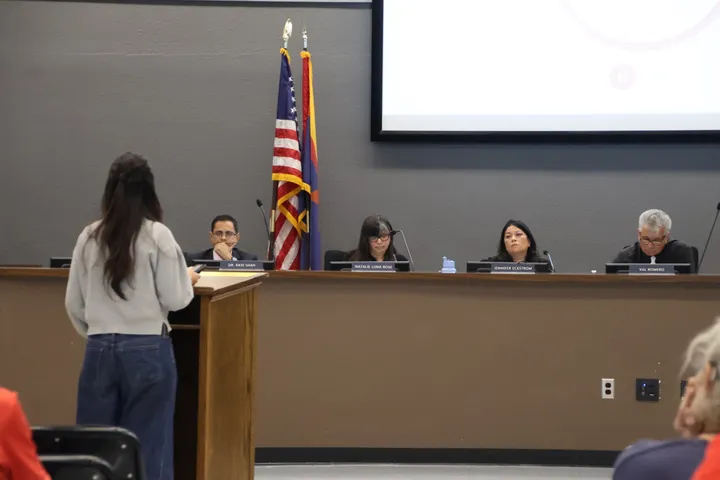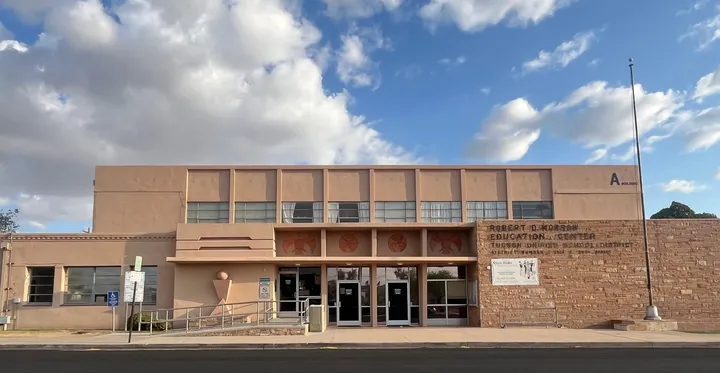UA climate plan stalls amid shifting priorities and federal DEI restrictions
Despite years of development, the University of Arizona’s Climate Action Plan has stalled amid shifting federal policies and administrative priorities, sparking student protests and concerns about the university’s commitment to sustainability.

Despite years of work and near completion, the University of Arizona’s Climate Action Plan appears to be on the back burner as university leaders navigate new federal restrictions and challenges.
While administrators maintain the plan is moving ahead, students and sustainability advocates say momentum has stalled — raising concerns that climate action is no longer a top priority for the institution.
The Climate Action Plan is a blueprint for achieving net-zero carbon emissions by 2040. UA is the only public university in the state without a formal climate action plan.
But student organizers say recent federal actions have pushed the plan aside, leaving sustainability advocates frustrated and in the dark.
UA officials have denied the claims.
“Nothing has been frozen and university leaders are looking forward to reviewing the plan,” said UA spokesperson Mitch Zak.
But several students told Tucson Spotlight the plan no longer seems to be a priority for President Suresh Garimella and his administration.
Since taking office in January, President Donald Trump has taken several actions that have significantly impacted universities, including:
- Issuing executive orders and launching investigations targeting diversity, equity and inclusion programs under the argument that they violate civil rights laws and promote discrimination.
- Proposing deep cuts to federal funding for research and imposing restrictions on indirect cost reimbursements for research grants.
- Revoking visas for international students, particularly those identified as being involved in protests or activities deemed undesirable.
- Reversing Biden-era Title IX regulations and reinstating 2020 rules that narrowed the definition of sexual harassment and provided greater due process protections for those accused.
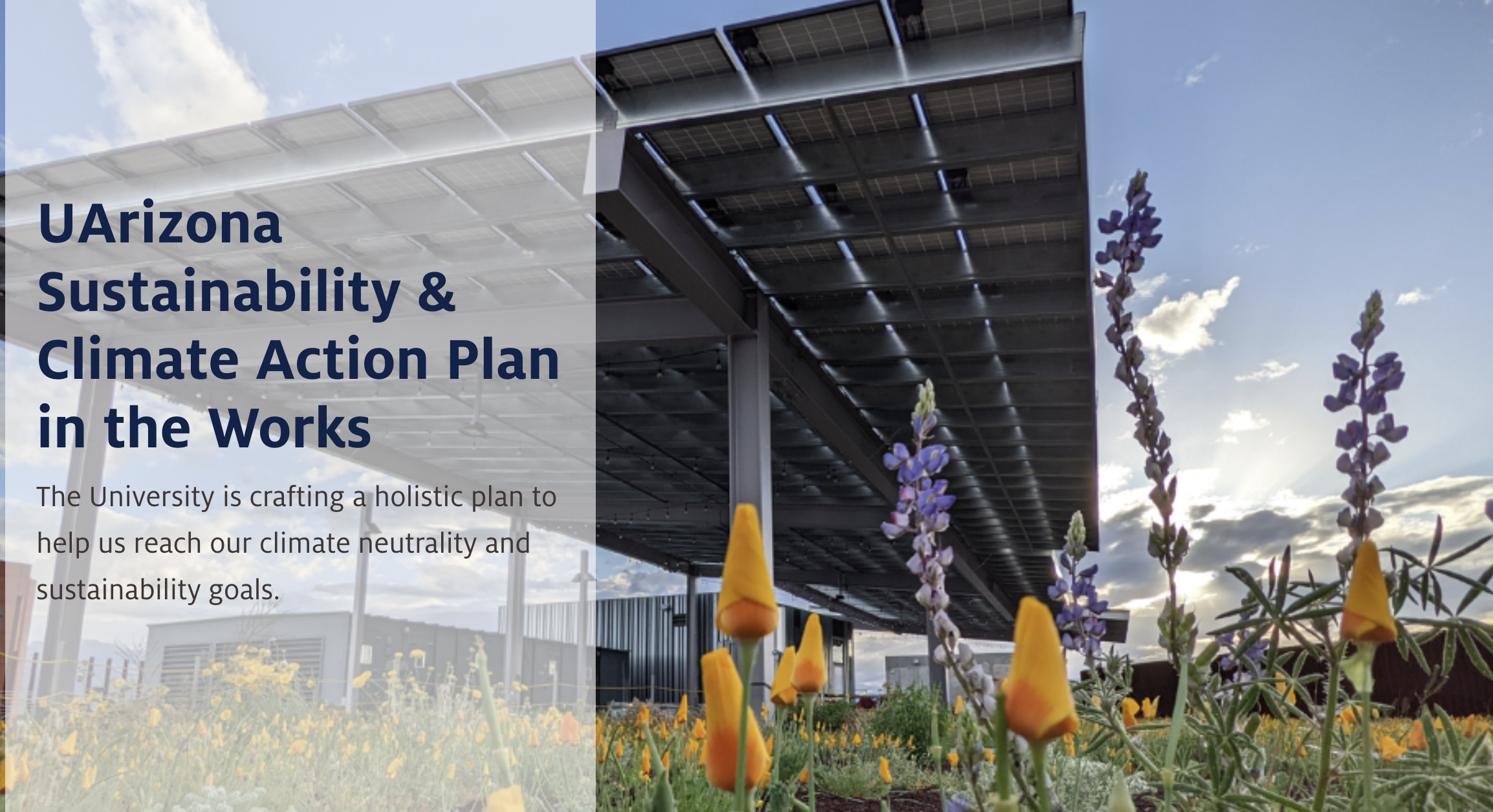
Following the January 2025 executive order directing the end of DEI programs, Garimella said the university would comply with the orders and would conduct a review of its DEI programs.
UA officials have stressed the importance of state and federal funding to the school and the need to comply with all laws and guidelines, but faculty have expressed serious concern regarding the orders and their potential impact on academic freedom and the university’s mission.
A majority of faculty members voted in favor of a referendum urging Garimella and UA leaders to resist the Trump administration's actions, which they view as “governmental attacks.”
Faculty have also urged UA to join other universities in opposing government involvement in higher education and protecting academic freedom.
On Tuesday, UA updated the campus community on its “strategic imperatives,” which contain only a single, vague reference to climate and sustainability.
The imperatives, posted on the Office of the President’s website, state that “student success is the north star” and outline priorities for UA and its future.
Under the section about priorities as a land-grant university, the imperatives say UA has prioritized using its “expertise in water resources, engineering, climate and sustainability, and the natural and built environment to ensure a resilient future in which Arizona can thrive.”
Student activists with UA Divest, a group advocating for environmentally responsible university investments, say they’re disappointed that the plan is in limbo with no clear path forward.
Rhys Williams, president of UA Divest, said the university is already behind in meeting its climate commitments.
“It’s incredibly frustrating to see an administration that once prided itself on sustainability now stalling vital progress,” Williams said, adding that protests and demonstrations will continue until the CAP is reinstated.
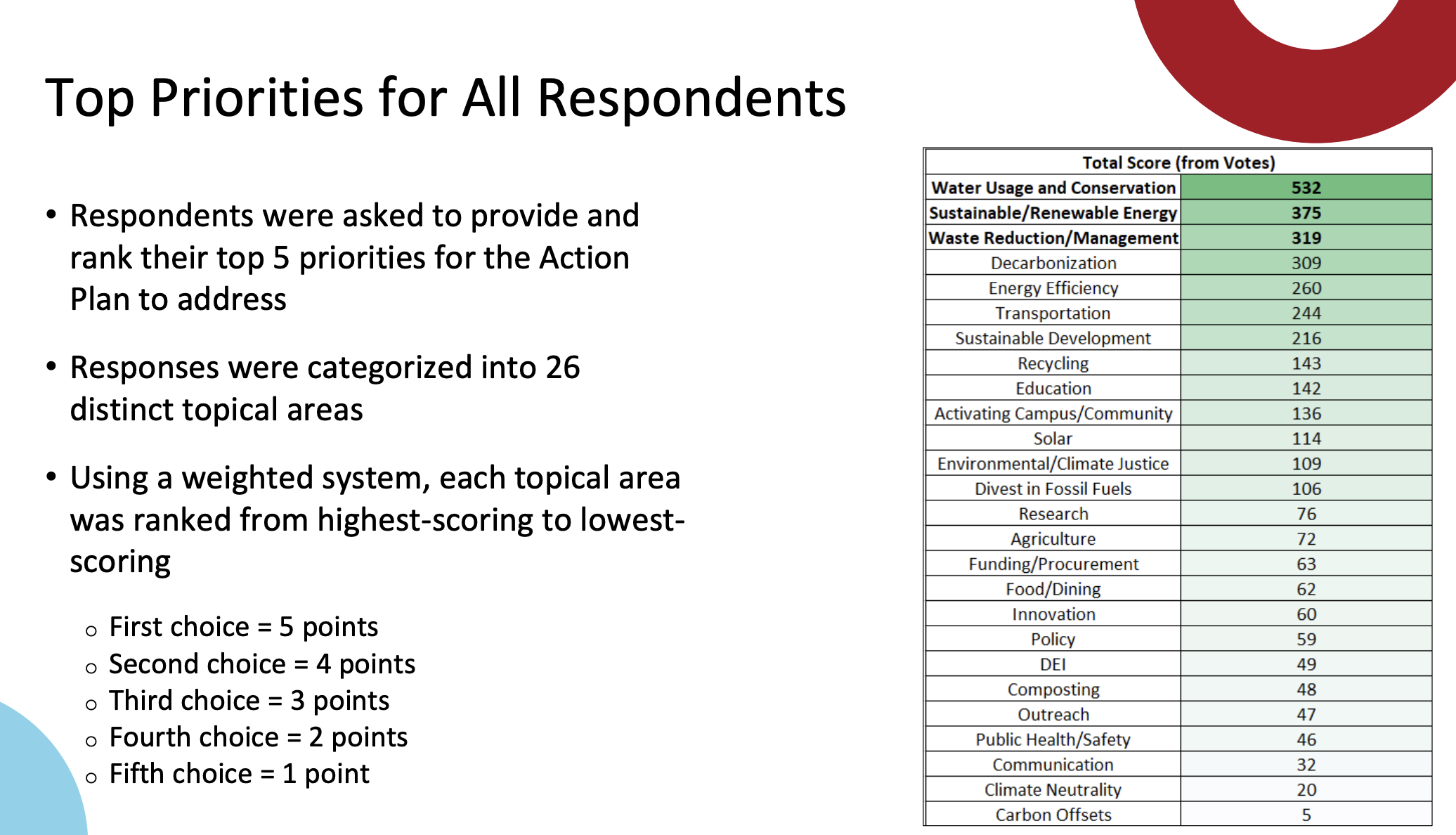
For years, UA has prided itself on being a leader in sustainability, weaving climate commitments into its 2018 strategic plan and leveraging cutting-edge research from Biosphere 2 and Arizona Tech Parks.
The Office of Sustainability spent years collecting data and designing the Climate Action Plan as a roadmap for a greener future.
The plan’s status has sparked concerns among students over transparency, climate responsibility and the broader implications of federal policy on university initiatives.
Students say what was once a hopeful step toward environmental leadership is now tangled in bureaucracy, leaving the fate of UA’s sustainability efforts uncertain.
Many climate advocates argue that sustainability and social justice are inherently linked and that the inclusion of DEI-related language and initiatives is key to a successful plan.
“You can’t have climate action and climate justice without ensuring that all communities — especially those most affected by environmental crises — are uplifted,” said Ojas Sanghi, a member of UA Divest and Tucson co-lead of the Arizona Youth Climate Coalition.
Removal of DEI considerations, Sanghi warned, would weaken the broader impact of sustainability efforts. Critics say this is especially harmful to students who rely on federal funding, including those from low-income backgrounds and students with disabilities.
Uncertainty surrounding the CAP’s status has also raised questions about universities’ roles in fostering open inquiry and thought.
“Universities are supposed to be spaces where ideas can be explored freely,” Sanghi said.
UA Divest and other student-led organizations are mobilizing to keep the pressure on university leadership. Weekly demonstrations have already begun, with students demanding transparency and accountability. Earlier this month, hundreds of students took to the mall for a “Students for Science” demonstration, rallying in support of continued funding for research programs and initiatives.
“We’re not going to sit by silently while they try to erase years of work,” Williams said. “We want action, we want sustainability, we want DEI, and we’re going to make that known.”
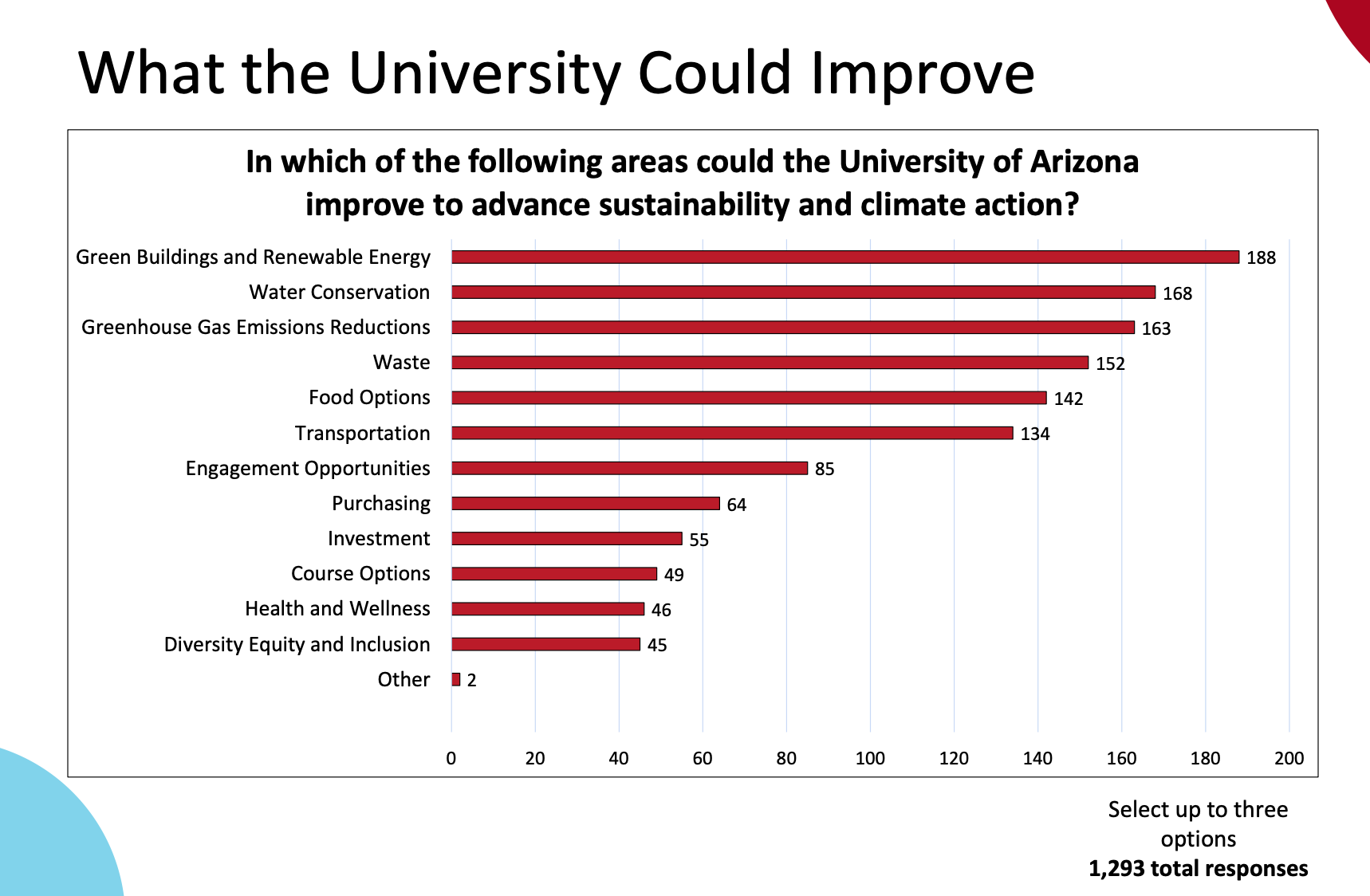
The broader implications of these policy shifts extend beyond UA. Many fear that similar rollbacks will occur at other public universities across the country as institutions navigate federal pressure on DEI initiatives.
“What’s happening here is a litmus test,” Williams said. “If UA folds this easily, other universities will follow suit. And that’s a dangerous precedent for climate action nationwide.”
As students push for the adoption of the Climate Action Plan, discussions around alternative solutions have gained traction. One proposed avenue is securing private funding for sustainability initiatives.
However, some remain deeply skeptical about this approach, arguing it shifts responsibility away from public institutions and weakens long-term commitments to climate action.
Sanghi said that relying on private donors to fill the gap left by defunded public programs is a flawed model, rooted in libertarian ideology that justifies stripping institutions of their responsibilities.
“The UA is a public institution, and climate action is a public concern,” Sanghi said. “When you remove public funding and institutional support, private companies, charities and foundations simply cannot fill that void.”
The consequences of inaction will only grow more severe, he said. Without a structured, university-led response to climate change, UA faces escalating risks — rising temperatures, worsening drought conditions and an increasingly strained local food system.
“If federal funding dries up and the university refuses to act, not only will we fail to prepare for these challenges, but we’ll also be actively contributing to the problem,” Sanghi warned. “This isn’t just about funding — it’s about responsibility, and UA cannot afford to ignore it.”
Despite the setbacks, student activists remain committed to fighting for climate action at UA. As protests grow and advocacy efforts intensify, the university administration faces increasing pressure to reinstate the CAP and reaffirm its commitment to sustainability.
“Protests alone won’t get us there,” Sanghi conceded. “But they’re the first step. We need to show resistance, to show that we won’t back down.”
Angelina Maynes is a University of Arizona alum and reporter with Tucson Spotlight. Contact her at angelinamaynes@arizona.edu.
Tucson Spotlight is a community-based newsroom that provides paid opportunities for students and rising journalists in Southern Arizona. Please support our work with a paid subscription.


